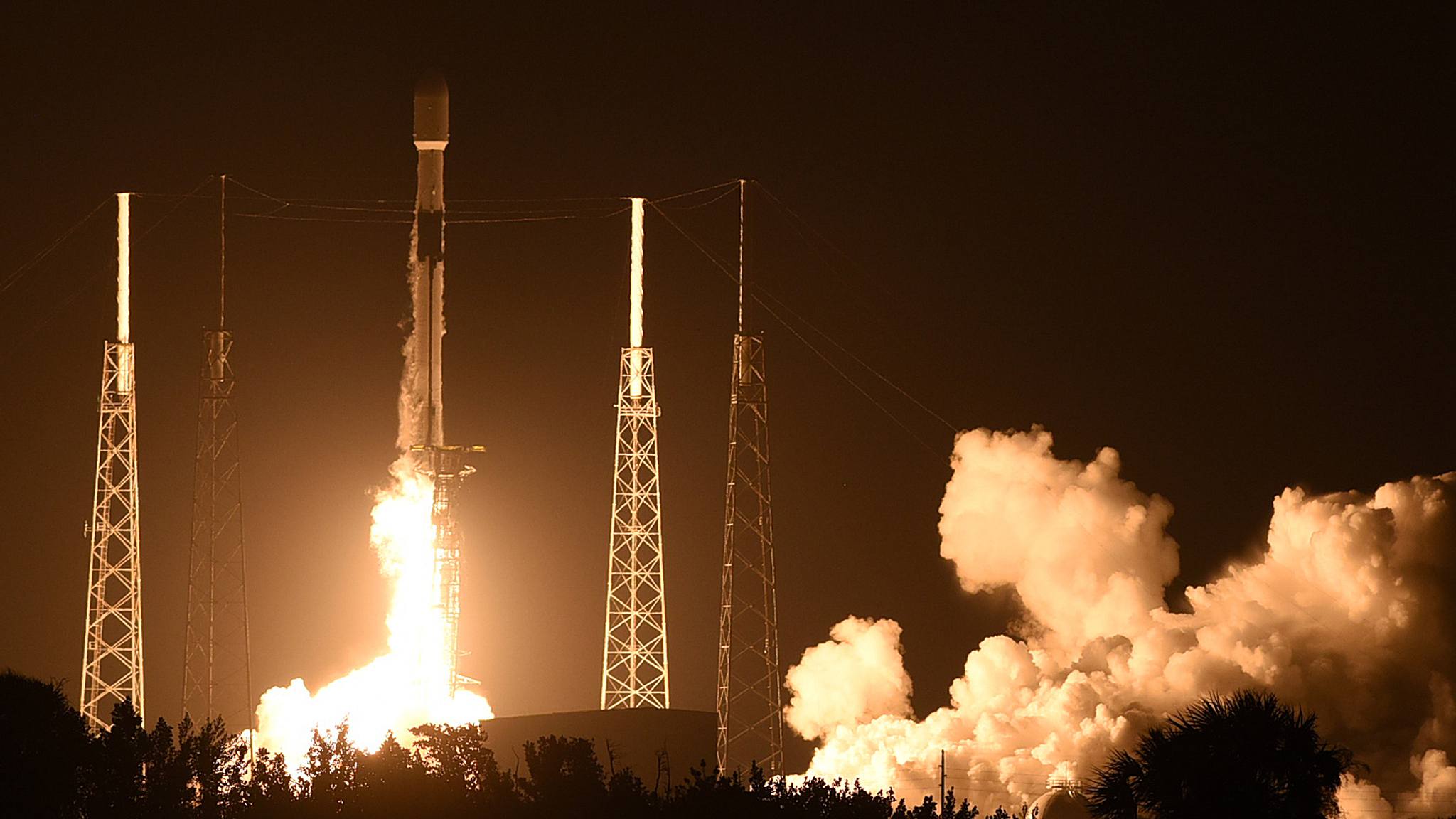
A SpaceX Falcon 9 rocket carrying the 19th batch of 60 Starlink satellites launches from pad 40 at Cape Canaveral Space Force Station, February 15, 2021. /CFP
A SpaceX Falcon 9 rocket carrying the 19th batch of 60 Starlink satellites launches from pad 40 at Cape Canaveral Space Force Station, February 15, 2021. /CFP
SpaceX successfully sent a new batch of 60 Starlink internet satellites into orbit on Monday, after a day's delay due to bad weather.
The two-stage Falcon 9 rocket carrying those satellites was launched at 10:59 p.m. EST from the Cape Canaveral Space Force Station. The launch brings the total number of Starlink satellites active in orbit to 1,145, a step toward the company's ambitious mission to form a constellation of over 12,000 satellites into low orbits around the Earth to provide broadband coverage.
The rocket's first stage, however, failed to land on the company's "Of Course I Still Love You" drone ship stationed in the Atlantic Ocean.
"It is unfortunate that we did not recover this booster but our second stage is still on a nominal trajectory," said Jessica Anderson, SpaceX manufacturing engineer.
This is the first time since the sixth Starlink mission in March 2020 that the company has failed to recover the booster.
But the company said it is always their primary mission to deliver a flight's payload to orbit.
Another batch of 60 satellites is set to be launched as early as Wednesday by another Falcon 9 rocket, according to space.com. "The quick succession is due to the fact that SpaceX recently had to shuffle around its planned Starlink missions as both weather and hardware-related issues presented a bit of a challenge."
Starlink is now delivering initial beta service, said the company, with which users can expect data speed to "vary from 50Mb/s to 150Mb/s and latency from 20ms to 40ms," according its website.

